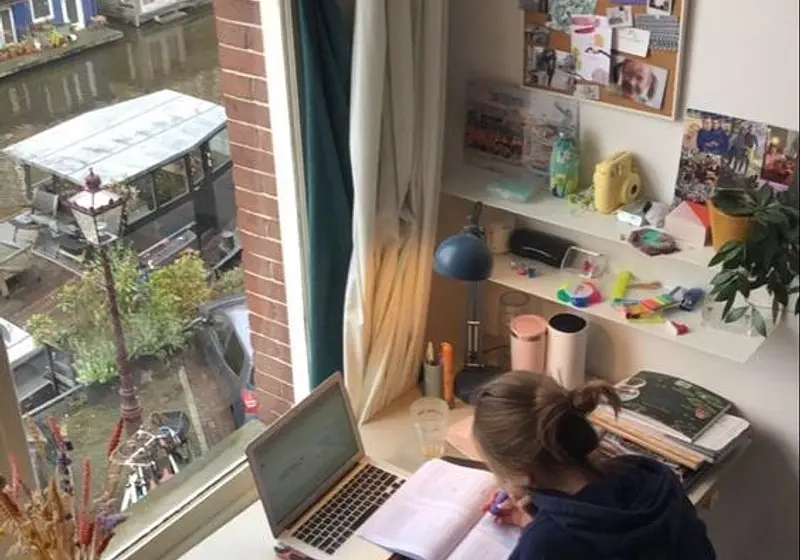It's officially that time of year again: a dark chill has swept over any lingering fall spirit, marking the start of winter. Coupled with stress from upcoming finals and burnout from the repetition of school, this melancholy can cause a lack of motivation and lower academic performance among students. Here are the best tips for students to avoid burnout and keep going strong this school year.
Let us slide into your dms 🥰
Get notified of top trending articles like this one every week! (we won't spam you)1) Set Attainable Goals
Start by outlining specific academic goals, such as getting your grades up to a certain average or achieving a particular GPA. If you know what you are working towards, it is easier to maintain motivation and dedication. Once you have made a list, create specific steps with deadlines for each goal, ensuring you can fulfill these commitments. This will prevent feeling overwhelmed later on, as you know exactly what you want and how you will get it.
Take the Quiz: What Type of Notes Should I Take?
Discover the best note-taking method for your learning style!
2) Follow a Balanced Schedule
Creating a schedule is key to organization and consistency, both of which are major components of academic success. You can use a digital schedule template or jot things down on a piece of paper, depending on what works better for you.
The first step is to identify your high-priority activities and responsibilities, noting if each needs to be completed at a specific time, or if it is more flexible. Plug these into your schedule, keeping in mind that tasks often take longer than anticipated. Make sure that you carve out at least eight hours to sleep as well.
Then, you can add less-important tasks, like a small chore or hobby. Once this is done, you should have at least a couple of hours of free time. You can leave these slots empty, if you like, or you can make your schedule very detailed, like the following:
If you feel overwhelmed, determine if some things in your schedule can be cut out or allotted less time. Cramming too much can have adverse effects by causing you to procrastinate.
If you want to take it a step further, you can use a planner as well, jotting down your daily tasks and using your schedule to find time to complete them.
3) Choose a Good Studying Environment
It is hard to be productive when surrounded by chatter and clutter. Select a place that has limited distractions, with everything you need within reach. It should always be available during the times you designated for studying in your schedule. Some good ideas are a library, your bedroom (if you can eliminate distractions), a book store, or a coffee shop.
Furthermore, if possible, it can be helpful to write your goals somewhere in your study space, like on a sticky note or whiteboard. This will ensure you know what you are working towards, increasing motivation.
4) Establish a Support System
Staying dedicated on your own is difficult. Identify people who you can depend on to celebrate your achievements with you and uplift you during rough patches. Friends from school are a great choice because they might understand your emotions better, and they can help you with homework or studying if they are in your classes.
Family and non-school friends can also be supportive, or even community members or mentors. The strongest support systems include people who have various relationships with you, as some may be more helpful than others at times, depending on the situation.
5) Set Boundaries
If your friends are going to a party, but you have a huge test the next morning, saying no is the best choice. While making memories as a teenager is important, you must have boundaries as well to perform your best academically. To decide if you should go out or not, consider your schedule and prioritize your commitments. If you are struggling to do this, you can think about your academic goals.
On the flip side, you should not be studying constantly. You can experiment with different schedules to find what allows you to adequately rest while making progress towards your academic goals. This can be tricky; consult your support system if you need help.
6) Reward Yourself
If you try to push yourself relentlessly, you will face burnout, which is dangerous for your mental health. After studying intensely for a big test, let yourself spend time with friends or binge-watch a new show without guilt; you earned it! This would also be a good time to practice self-care or return to hobbies that you have not had much time for. Rewarding yourself with gratitude and patience is an essential part of achieving your goals.
Summary
Winter is typically when frustration and exhaustion begin to plague students. To fight this, students must set academic goals and create realistic schedules. Then, they should select a studying environment and support system to stay motivated, while also creating boundaries and incentives. By following these tips, students can maintain high grades without sacrificing their well-being.


















